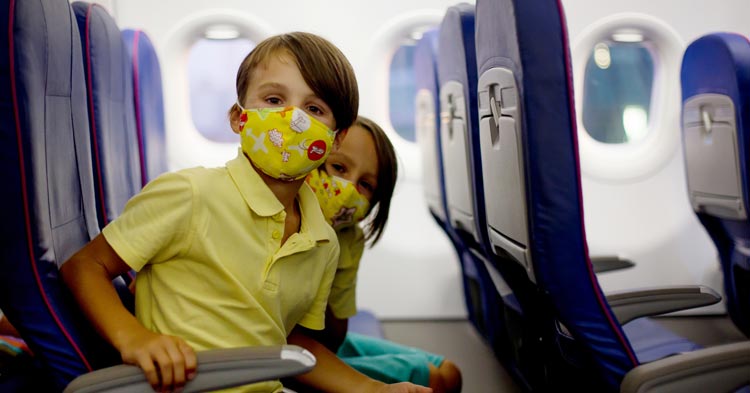Traveling abroad with children for parents who are separated can present several unique challenges.
Air travel with your children is a special event for a family. But it can be difficult to get on the same with parents of shared custody. Reviewing your options with a child custody lawyer may be your best bet before making any big decision.
Review your current custody order
Often the custody order will spell out what steps need to be taken to gain consent from the other parent, e.g. providing thirty days written notice, a complete itinerary, etc. It is critical that you adhere to your custody order. Failing to do so can result in the other parent asking a court to find you in contempt.
Without a custody order, or if your order is silent on the question of travel, you should get consent from the other party and/or court approval. It’s highly recommended that you speak to an experienced family law attorney about this.
What written documents are required?
Assuming that the other parent approves with your traveling with the children, the next question is what written documentation is required? While there is currently no legal authority in the United States requiring a parent to get a signed consent form from the other parent in order to travel outside of the United States with the children, a parent can still be stopped either by Customs and Border Patrol in the United States or by Customs in the visiting county.
Best practices dictate that you get the other parent to sign and notarize a consent form to take to the airport with you. The Information Center page for the United States Customs and Border Protection provides helpful guidance on this question, specifically, what types of information should be included in the letter, for instance:
- The names of the (child) or children on the trip and their primary address, phone number, date and place of birth, and name of at least one parent or legal guardian for each child.
- The name of the group and supervising adult(s) such as: School groups, teen tours, vacation groups.
- A written and signed statement of the supervising adult certifying that he or she has parental or legal guardian consent for each child. CBP also suggest that this note be notarized, to easily verify the validity of the parental authorization.
- For frequent border crossers, the letter should not exceed one year. It is recommended to have the letter in English.
Be Prepared
Once you go through the process of preparing a letter and having the other parent sign and notarize it, Customs and Border Protection may not ask for it when you travel. Remember, if you do not have clear authorization from the other parent and Customs and Border Protection does ask for it, you and your child[ren) could be detained while Customs and Border Protection sorts out whether consent to travel was given by the other parent.
While the United States Customs and Border Protection doesn’t require this authorization the Customs equivalent for the nation you are visiting may. Our strong recommendation as family law attorneys is to prepare a letter. A sample can be found here. Again, the letter should be notarized so the Customs Officer can quickly ascertain that the other parent has given his or her consent.
Why would Customs and/or Border Protection want to see travel authorization from the other parent?
The rationale for requesting confirmation that the other parent has consented to the travel is to reduce the potential for abduction claims. Taking the steps to ensure that you have written consent from the other parent will allow you the peace of mind so you face no potential issues with Customs either in this country, or in the county you are visiting.
Having a notarized letter from the other parent and being prepared for anything when traveling abroad, especially is smart. Stay up to date by visiting the websites we've included above, and make sure to keep your child's parent informed any travel outside of Pennsylvania, especially abroad. Consult with a child custody lawyer if you have any more questions. It's more important to make sure you are informed than to assume.
